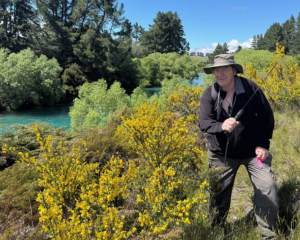A house fire which claimed the lives of a woman and her granddaughter was started when the child's mother left the stove on after using it to spot cannabis.
Bessie Tehuia Tokona (61) and Eunice Rebecca Jean Felton (6) both died in the fire at the Housing NZ house they shared with nine others on Exeter Cres in Palmerston North on September 3, 2015.
In a report released by Coroner Tim Scott, it has been revealed the child's mother, Nechia Tokona, admitted to leaving the stove on after using the element to spot cannabis.
Specialist fire investigator Michael Finucane completed a report concluding the most likely place for the fire to have started was the two back elements of the stove, which had been left on the high positions.
"Initially flames had reached and melted an extractor fan above the stove," Scott's findings said.
"This caused the motor of the fan to fall from its mountings into or onto the pot at the left hand rear of the stove. This caused the pot to be dislodged from the stove and fall to the floor, and this caused the fire to spread."
There was evidence a pan of cooking oil was often left on the back left hand element of the stove with a lid on when not being used.
"It is probable that it was this pan full of cooking oil that started the house fire," Scott said.
The only available evidence of how the pan caught fire was Nechia Tokona's evidence she left the element on after spotting cannabis.
"She had no need to turn both elements on to do this . . . I am left to conclude that Nechia turned both the rear elements of the stove on (one by mistake) when she used the stove for spotting cannabis."
There were 11 people living in the house at the time of the fire, and Scott attributed the survival of many of the others to the "prompt brave and unselfish actions" of Eunice's older brother, who woke to the sound of smoke alarms and woke up other members of the family.
"I stated to the whanau then and I repeat here that although the deaths of Bessie and Eunice are a complete tragedy, the whanau can take positives from the tragedy, namely that nine whanau members escaped."
Some whanau members had to break upper storey windows and jump out to escape, while others went down a wooden fire ladder. They were unable to use the internal staircase because the smoke was too thick.
A second fire escape ladder had rotted away and never been replaced due to Housing Corporation policy to make fire escape routes user friendly for all people.
"The escape routes from this house were designed to be the two internal stairways and the three doors from the ground storey exiting the house."
The upper windows of the house were sealed with safety latches to prevent children falling out, which was why whanau had to break the windows to escape.
Scott said he could appreciate and understand the reasoning for fire exits to be available for all people, and the reasoning for the safety catches on upstairs windows.
"However while I can understand the reasoning, I do not accept it," he said.
"These policies did not result in any additional fatalities at Exeter Crescent but they might have done. Windows needed to be broken and that comes with its own set of issues, and there was only one - and not two fire escapes.
"When it comes to a fire surely the more escape routes the better, even if some of these cannot be used by all people all the time."











